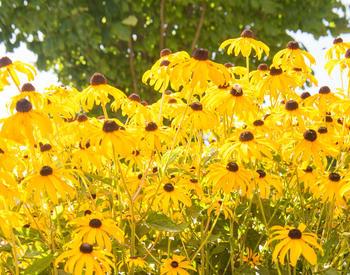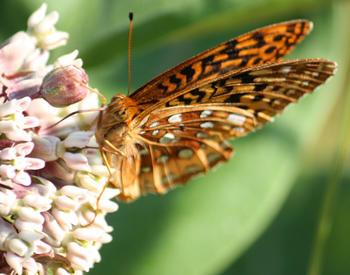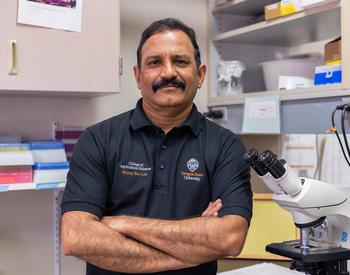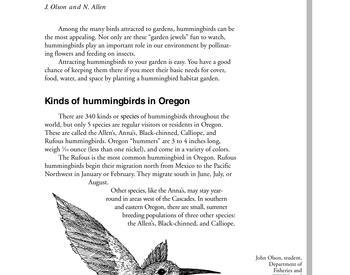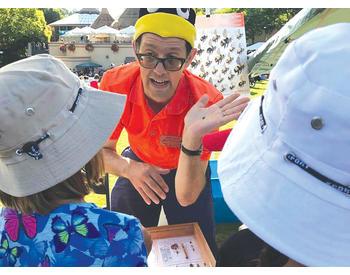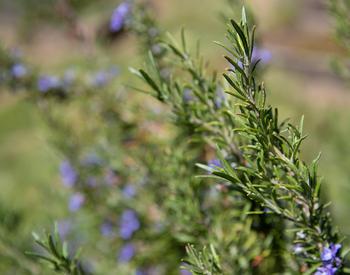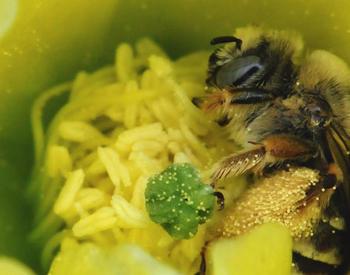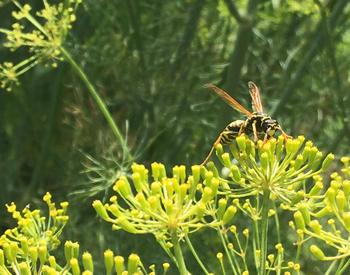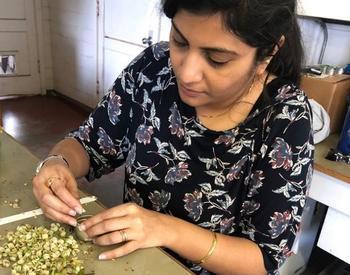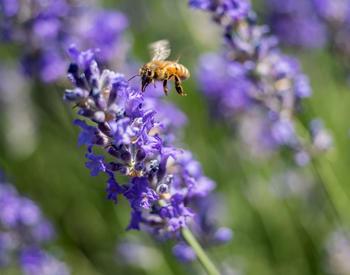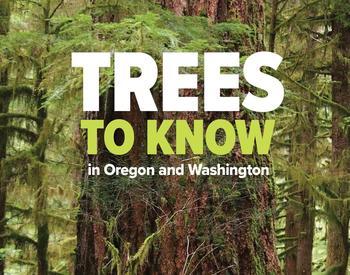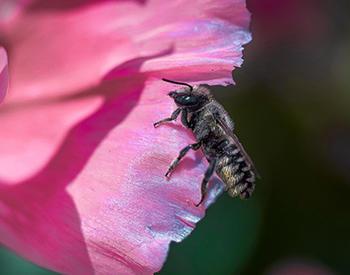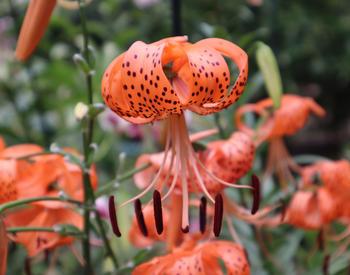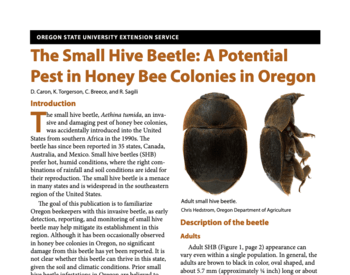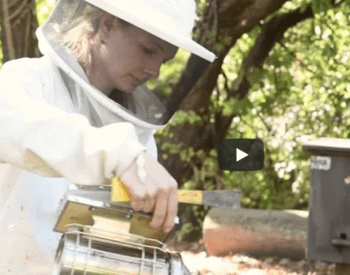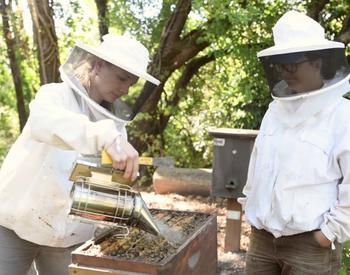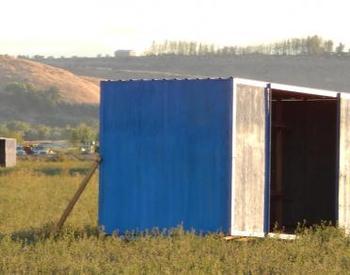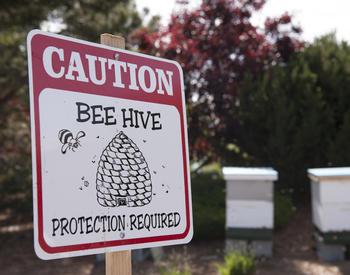Transcript
Andony Melathopoulos: [00:00:00] In 2019 the Washington State Legislature passed a bill that among other things created a Pollinator Health Task Force, really focused on developing recommendations to bring back to the legislature and to figure out how to come up with a comprehensive strategy for pollinator protection in the state of Washington. I'm really excited today to have, as my guest, Dr. Katie Buckley, she's the Pollinator Health Coordinator for the Washington State Department of Agriculture. She's been chairing that task force over the past year and it's a really timely, time for this podcast, because just this week that task force delivered its recommendations to the Washington Legislature.
[00:00:45] So in this episode, we're going to hear from Dr. Buckley about some of the key recommendations, but also the process behind the task force and how it operated. This is boding very well for Oregon. I think having such a [00:01:00] strong initiative in Washington is only going to lead to some better resources throughout the Pacific Northwest region.
[00:01:07] I also just want to take this moment to remind you that this Friday, December 11th from 9:00 AM Pacific Time to 2:00 PM Pacific Time is the Orchard Bee Association annual meeting. You can register by going to orchardbee.org. As many of you know from past episodes it's one of my favorite meetings to go to - it's really intimate and close, and there's some great science and practical tips that you can get at this meeting. Without further ado let's head over to Washington and hear about the findings of the Pollinator Health Task Force this week on PolliNation.
[00:01:44] Welcome to PolliNation. We're glad to have you on the show today. And I'm just really excited to learn that just 20 minutes before this was recorded Washington's reportings from its Pollinator Task Force were [00:02:00] released. I want to come right back to the task force, but can you tell us about the 2019 bill from the Washington State Legislature on protecting native pollinators? What are the circumstances that prompted the bill and what did the bill call for? What kind of action did it ask to be done?
[00:02:18] Katie Buckley: [00:02:18] So I was not around for this, but what it sounded like to me is after the MP3's got done. Washington's was published in 2018, not really a lot happened from that. But it did bring pollinators to the forefront of several legislators and other politicians minds. And a few of them got together and decided that we needed as a state to do more.
[00:02:54] So they passed this bill it's substitute SB 5552. [00:03:00] And they passed that, I believe unanimously in May 2019. And that did several things, it basically, for one thing, acknowledged that pollinators are really important, especially to the state of Washington in our environment and our agriculture. But it also created a Pollinator Program within the Washington State Department of Agriculture, which is where I work - it created a Pollinator Health Task Force.
[00:03:29] They wanted a report on a whole bunch of recommendations on how to help pollinators and pollinator health. And it had some really specific requirements that they wanted us to include. And it also made pollinators and pollinator habitat a priority in pretty much every state agency that manages land. So, State Parks, Fish and Wildlife, a whole bunch of different [00:04:00] people now have pollinators on their list of priorities, when they're making land management decisions.
[00:04:07] It did a couple other things too, it basically gave towns and counties and cities, the right to have community gardens if they so choose. But that was towards the end of the bill and I think they had fun with that part. So it was actually a pretty cool bill that made a lot of little changes in what state agencies are required to do. But the big things were, it created this Pollinator Program in the WSDA and the Pollinator Health Task Force.
[00:04:38] Andony Melathopoulos: [00:04:38] Okay. And so you are leading up the pollinator group in the Washington State Department of Agriculture?
[00:04:47] Katie Buckley: [00:04:47] Yeah, I ended up getting hired to work on this and to be the chair because the WSDA was supposed to be in charge of chairing the task force. [00:05:00] It was basically my dream job. I've always wanted to work on pollinators and actually my previous job was as a pest biologist working on invasive species for the WSDA. So now I get to talk about pollinators instead of apple maggot all day - and it's really quite awesome.
[00:05:19] Andony Melathopoulos: [00:05:19] Well, and I think you're probably the only person with that job title. I think we have a colleague in Minnesota who may have a similar title. A Department of Agriculture employee, who's not just the apiary inspector. This is a new thing.
[00:05:32] Katie Buckley: [00:05:32] Yeah. What's funny is Washington State currently doesn't even have an apiary inspector. We haven't had one in a couple of decades.
[00:05:40] Andony Melathopoulos: [00:05:40] Same with Oregon.
[00:05:42] Katie Buckley: [00:05:42] Yes, technically we have an apiary program, but pretty much all it is hive registrations, which if you're a Washington beekeeper, please register your hives. It all goes to fund honeybee research. So you do get some benefit out of it. It's not very expensive, just please, [00:06:00] please do it. But that's pretty much it. We have a hive registration, if you're registered, it grants you some protections under state law - you can't be held liable for your bees stinging somebody for example, if you're registered with the state. Which was a new law that passed maybe two years ago. So yeah, it's definitely interesting. And yeah, there aren't a lot of other states that have a position like mine especially one that does not discriminate between wild and managed pollinators. I'm supposed to be helping all of them.
[00:06:41] Andony Melathopoulos: [00:06:41] Well, that's fantastic. And that's how the bill was written. The legislature really wanted to have that kind of a position in place and that kind of a program. If we go to the brand new pollinator [00:07:00] website with WSDA there's lots there. And if you scroll through it, you come to the Pollinator Health Task Force pages. And you have been busy chairing a lot of meetings with a lot of stakeholders. Can you describe what the process of the task force was like and who was on the task force? And maybe even just back it up, what was the mission of the task force? What was the task force supposed to do?
[00:07:22] Katie Buckley: [00:07:22] So, okay. I'm going to have to actually pull up the Bill because it gets complicated. So way back when I got this job in October, they told me to put together this task force and I had help because I didn't know who all the players were. Like written in the Bill, we were supposed to have representatives from a number of different state agencies. We were also supposed to have different industry representatives, conservation group representatives, University representatives.
[00:08:00] [00:07:59] And basically also anybody else who is interested. So members of the public, beekeepers and, tribal members even a youth representative. So it ended up being almost 40 people, that I was organizing meetings for. We finally got enough people together to have our first meeting on December 9th in 2019.
[00:08:30] Andony Melathopoulos: [00:08:30] Which is five days from now. You've been able to come up with the report in lightspeed! Anyway, keep going.
[00:08:40] Katie Buckley: [00:08:40] Yeah. So what ended up being really funny was we had our first in-person meeting and it went pretty well. We figured out kind of like our very broad overlay. We were essentially going to "steal" Minnesota's ideas and then [00:09:00] adapt them to our own and make sure that we included what we were required to from the Bill. Because Minnesota had a lot of really good ideas and then we looked at some of them in more detail and went, "whoa, these will not work in Washington" so some of them got thrown out. Some of them got very heavily adapted and then we added our own because we had requirements that they did not cover.
[00:09:24] So it ended up being 42 recommendations that we came up with. But at the very beginning, we essentially decided we were going to break it down into five subcommittees. Habitat was kind of our main one. The Bill really focused on creating pollinator habitat as one of the main priorities. So that was also one of our main priorities. Especially because, we realized that creating habitat is going to be the best way to support the most pollinators. We had [00:10:00] a pesticide subcommittee, an education subcommittee, a managed pollinator subcommittee, and a research subcommittee.
[00:10:08] Because one of the things that we were required to do was come up with a series of research recommendations, too. So we had fun identifying a whole bunch of gaps in knowledge that we want to further look into. Anyway to take it back to why the date was so interesting, the day before was when a homeowner in Bellingham found on his front porch, a dead Asian giant hornet. So the day after our first Pollinator Health Task Force meeting is when we got our first confirmation that there was Asian giant hornet in this state.
[00:10:55] Once more, a week later, the next [00:11:00] week we had a guy from Crown Bees, Dave Hunter contacted us. And he was like, "we've been finding something really weird in our mason bee cocoons when we look at them every winter, we've seen it like last winter too. But this winter, we finally had somebody tell us what they think it was. We think it's Houdini fly, which is this European pest of mason bees." So yeah, within the space of a week, we had our first task force meeting and two invasive species that impact pollinators. So when I was like, "yeah, I get to work on pollinators now and not invasive species." That was totally not true!
[00:11:42] Andony Melathopoulos: [00:11:42] I want to point it out because I think, you know, probably when the task force was struck, a number of things couldn't have been anticipated. Asian giant hornet is one of them, but the pandemic as well. And being able to keep these meetings on track and be able to get through all that business, [00:12:00] it's a remarkable task that you guys were able to pull this all together.
[00:12:05] Katie Buckley: [00:12:05] Yeah, so we actually ended up really lucky because we'd already planned on having all of our subcommittee meetings on Webex. So we started having those in January. We were supposed to have our big task force meetings in person. We had one more of those in February and then all the rest ended up on Webex too. So we set ourselves up fairly well, unintentionally for this all to go down. And I will definitely say Webex and Google Docs are like the best things ever for this kind of stuff, because you can have whatever meetings you want. Talk as long as you want with so many different people and Google Docs makes it really easy to see who's made what changes.
[00:12:55] Andony Melathopoulos: [00:12:55] I had the great pleasure of being invited as an observer to one meeting and I have to [00:13:00] say, you had a really great facilitator too. Somebody who really knew how to run those kinds of meetings, and you were sort of capturing everything on the Google Docs. And so it led to a real rich meeting where all these diverse stakeholders could raise their concern or ideas and be able to quickly move through what's a huge set of issues.
[00:13:22] Katie Buckley: [00:13:22] Yeah and the big task force meetings ended up being really good for making sure that we were on the right approach overall. But our subcommittees were really where most of the bulk of work was done with endless debates about different topics mostly on target. And we had some really interesting discussions that resulted in many of our recommendations being greatly improved because of the opposing opinions.
[00:13:58] So we ended up [00:14:00] as a group, pretty happy with the report that we produced. Like I said, we had industry groups and conservation groups, and that included pesticide applicators and the pesticide industry. And they were some of the most critical people in helping us refine our recommendations to something that would work in the real world.
[00:14:26] Andony Melathopoulos: [00:14:26] I have to say my experience in Oregon it's been something similar because a lot of those people have really strong organizational skills and know how to put a strategic plan together. And I have leaned on some of them just not in terms of content, but just in terms of like, how do you flush this out and make it realistic? They can have a lot of skills to bring to bear.
[00:14:49] Katie Buckley: [00:14:49] Yeah it was really nice. There were a lot of people on the task force that had a lot of experience, that the rest of us did not [00:15:00] have and were incredibly helpful in moving everything forward.
[00:15:05] Andony Melathopoulos: [00:15:05] Okay. Well, let's take a quick break. I want to come back and get into some of the key recommendations and also just learn a little bit more about now that the task force has reported, what's next for Washington. So let's take a quick break and we'll be right back.
[00:15:22] Okay. We're back, now I'm really impressed, the documentation for the task force meetings is rigorous. You can find all the meetings, many of them recorded on the website. But in case somebody doesn't want to go through hours and hours, listening to everything and sort of get the gist of what some of the key issues and recommendations of the task force were. Can you touch on some of them?
[00:15:47] Katie Buckley: [00:15:47] Yeah. So our main focus again was on habitat creation. So we had a bunch of different ways to do that. Of our habitat recommendations, a lot of them dealt [00:16:00] with things like how to increase pollinator habitat on State Lands but also how to increase it in agricultural settings and on private property. Our education recommendations had something similar. A lot of those are on increasing people's knowledge on how to create habitat or the best way to help pollinators. And some of that was for very specific groups. So people going to a gardening center, we're hoping to work with the gardening centers and local nurseries on better information there for plant selection.
[00:16:52] Some were a bit broader. So we had some stuff for K-12 [00:17:00] education that we need to come up with more education plans. And that would obviously cover a whole broad section of children. We also had a lot of education on proper pesticide usage. We decided very early on in our process and in our pesticide subcommittee meetings that education around pesticides was going to be the best way to help pollinators on the pesticides issue. Because, pesticides can be used safely and unfortunately there's a number of people that don't know how to do that.
[00:17:37] Our pesticide applicators in the state of Washington have access to one of the best pesticide education programs. The WSTA and WSU have been running that very successfully for a very long time. But most of that training revolves around human safety, which obviously is very important. We don't want people having issues with pesticides, [00:18:00] but it's going to be relatively easy to expand that, to also be around pollinator safety. Some of which has already been implemented and has been going on for a while. We just want to increase the focus on it.
[00:18:17] So there were a number of programs that we chose to point out as things that we are already doing well. For example, our pesticide compliance team, with the WSDA is very good about investigating any reports of pollinator kills. So we encourage people as always to report those. If they see something fishy, we can't do anything if people don't report things. We had other things that we wanted to point out like other states, the National Strategy to Help Promote Pollinators.
[00:18:55] We're really happy to collaborate across the nation in [00:19:00] our different projects. So there were things like that. We also had a lot of research recommendations. So we found a few places where we wanted to know more about what were really the best ways to do pollinator habitat restoration, specifically in Washington. Washington has some fairly unique ecosystems here, such as a temperate rainforest - and there's not always a lot of data on how best to help pollinators in places like that. So there were obviously a lot of other things too, that I'm not going to go into that were kind of smaller issues. We had one recommendation for having regulations on commercial bumblebees because we've had a non-native establish [00:20:00] itself near Seattle.
[00:20:01] Andony Melathopoulos: [00:20:01] Oh, right. And I think at some point, we're going to get Chris Looney, from WSDA to talk about the Bombus impatients movement down the I-5. But yeah, that's a great example of a threat that's really specific to Washington right now.
[00:20:16] Katie Buckley: [00:20:16] Yeah. So some stuff is very specific. And I'm kinda trying to touch more on the broader things. But yeah, some of it's stuff like that, that's very specific and some of it was like, we want to have a grant program where private land owners can get some funding to help put in more pollinator habitat on their property. And we're not sure exactly what form that's going to take, because again, these were recommendations to the legislature and they're going to be the ones to decide exactly what happens.
[00:20:54] Andony Melathopoulos: [00:20:54] It is worth noting on that issue. I was really impressed and I think in Oregon, we [00:21:00] tried to get some legislation, very similar where invasive weeds would be replaced by something with equal pollinator value. And Washington has passed, previous to this some legislation on this issue, but some of these are going to require some dollars to be able to pull off.
[00:21:19] Katie Buckley: [00:21:19] Yeah, that was actually one of the things in there. There was a previous bill that passed to look into that very issue, how to replace noxious weeds with pollinator friendly plants. No funding was attached to it. So we are asking for funding to now be attached to that.
[00:21:38] Andony Melathopoulos: [00:21:38] Well, I guess that brings us to the recommendations for the task force. Who sees these recommendations? What's the timeline for acting on them? What's next?
[00:21:49] Katie Buckley: [00:21:49] So what's next? This Wednesday, December 2nd our report was passed off to the legislature. And by [00:22:00] that, I mean, it went to the committees that worked on the original Bill, as well as the Bill sponsors and the majority caucuses in both the House and Senate. They will be reviewing it and hopefully drafting up further bills that might actually do the recommendations that we want it to. Or figure out which programs that we've proposed, that they want to fund and pass the spending bill for that kind of thing.
[00:22:34] Andony Melathopoulos: [00:22:34] Okay. So the subcommittee is going to look at the recommendations. They'll figure out what they want to advance. And then that will be put into a bill that the legislature will have to either approve or, deny?
[00:22:46] Katie Buckley: [00:22:46] That is my understanding. I have people that tell me what's going to happen next usually shortly before it happens. So I don't know exactly everything that's going to happen yet. But our [00:23:00] legislative session will start in January and usually goes through mid March. So that's the timeframe that we're looking at for when things will start happening. Right now, we wanted to get our report in, before the legislative session happens. So we actually turned in our report a month earlier than the Bill required us to. To try to give them as much time as we could for them to review it.
[00:23:28] Andony Melathopoulos: [00:23:28] And so it'll take some time. The Bill has to make it to the floor and there are amendments and other things may happen. Any anticipation of when we'll know how the legislature sort of views these recommendations? And maybe seeing a final bill passed?
[00:23:53] Katie Buckley: [00:23:53] I mean, I'm hoping, by at least mid-March. In the meantime, there were a number of [00:24:00] recommendations that we essentially were like, we can do these with current staffing levels and funding levels and should probably get started on them. So I personally am going to be working on the WSDA website to have a lot more best management practices. And starting to slowly expand it to have more information for different interested groups.
[00:24:24] There were some other people like in Fish and Wildlife and NDOT that are starting up their own projects related to different types of programs. So we also have a lot of very interested people who really want to collaborate on different types of pollinator habitat or pollinator health projects. So we'll probably start getting some of those on the ground. My position is at least funded through next year. So, hopefully longer than that, [00:25:00] it seems like it's going to be a permanent position. And I will get to start working on stuff as I can.
[00:25:10] Andony Melathopoulos: [00:25:10] Well, you know, I think the experience in Oregon and in other states is having somebody on the ground to sort of be a point person is so important and so key. And I guess this might not a bad opportunity to point out that, you know, one of the ways that we interact with one another is through a working group and there are other States across the US. And I hope they get Ana Heck on one of the shows in the future. But a bunch of us get together and we sort of think about how we might work together and share resources.
[00:25:42] Katie Buckley: [00:25:42] Yeah, and I love being a part of that group because I get to talk to people like you about the work that I'm doing and get good ideas for different projects that I can do too. And get really good information on how you guys have already implemented some [00:26:00] things. It's definitely informed some of our recommendations that we finished out with.
[00:26:06] Andony Melathopoulos: [00:26:06] Well, we're really excited for you in Washington. There's a long tradition of Washington and Oregon working together on pollinator issues. So I'm looking forward to the next phase of this chapter of collaborative work between the two states.
[00:26:21] Katie Buckley: [00:26:21] Me too.
[00:26:23] Andony Melathopoulos: [00:26:23] All right. Let's take a quick break with my heartfelt cheer for you. Let's take a quick break and we'll come back. I got these three questions that I ask all my guests. I'm so curious what your answers to these questions North of the border will be.
[00:26:46] Okay. We're back. Okay. So first thing, book recommendation for our listeners. What do you have?
[00:26:53] Katie Buckley: [00:26:53] I will admit that I still really like Attracting Native Pollinators put out by the Xerces Society. [00:27:00] That came out when I was working on my Masters and it's still pretty awesome. But I will also say The Superorganism by Bert Hölldobler and E. O. Wilson, was really interesting. Way back when I first read that just because it was a completely different way of looking at honeybee hives and other social insects.
[00:27:25] Andony Melathopoulos: [00:27:25] Katie, you might be the first person to recommend that book. And I am surprised like 163 episodes!
[00:27:33] Katie Buckley: [00:27:33] I was positive somebody was going to have recommended that one already.
[00:27:40] Andony Melathopoulos: [00:27:40] The other thing we should mention with that is you do keep bees. You're like a beekeeper. So you come to this honestly.
[00:27:48] Katie Buckley: [00:27:48] Yeah, that'll feed into the third question when we get to it.
[00:27:54] Andony Melathopoulos: [00:27:54] Tippin' your cards. Okay, here we go. Next question. What's the go-to tool for the kind of [00:28:00] work you do? And I almost think you're going to say Google Docs.
[00:28:03] Katie Buckley: [00:28:03] Docs was definitely of my answers. I do love Google Docs, it's just really great for collaborating with people. But I was going to say if people are interested in putting in their own pollinator habitat like I am currently doing around my house, yes in December, because I'm crazy. Seed starting equipment is the best thing. It will save you so much money to start your own seeds.
[00:28:33] Andony Melathopoulos: [00:28:33] Especially with native seeds. You know, just to broadcast them a lot of that stuff is just never going to come up. But if you can put them in a tray and get like the plant started, man, it saves the money of trying to find it out of the nursery. If you can find it. That's the other thing for some of these rare plants.
[00:28:52] Katie Buckley: [00:28:52] Yeah, it's actually really exciting. Because there's been such an interest in native plants and pollinator [00:29:00] habitat. There's so many more native seeds on the market now than there was even five years ago. So yeah, I currently have a couple seed trays out in the yard waiting for the spring. This is actually a pretty good time to start stuff because a lot of our native seeds need a cold wet period before they'll germinate.
[00:29:23] Andony Melathopoulos: [00:29:23] We are definitely in that period right now.
[00:29:26] Katie Buckley: [00:29:26] Yes we are.
[00:29:29] Andony Melathopoulos: [00:29:29] But I did want to come back to Google Docs as well, because you had a really efficient way of doing things, it was almost like a template where you would be able to record everything, but really boil things down. And I thought it was really great the way the screen was visible to everybody, so they could see the conversation sort of unfolding. Tell us a little bit about how you guys use Google Docs for organizing your meetings.
[00:29:53] Katie Buckley: [00:29:53] Well, so to start with, our task [00:30:00] force, not only had people across the state of Washington, which was partly why we really wanted to have this option to start with. We even had people that are not even in the state of Washington. So it was really important that we were able to include everyone. And we discovered that using the share screen on Webex, which you can do on Zoom as well. And many other video chat services, Webex is just the one that I had access to, it works pretty well.
[00:30:34] If you shared the screen on Google Docs and you had somebody who was basically the facilitator of the conversation, go to the section that you were currently talking about, then everybody was easily able to follow along. And even if people weren't able to use the video chat and had to call in, as long as you told them what section you were on and what you were currently discussing, they were still able to see it in real time on their [00:31:00] computer screen.
[00:31:01] So it made it really easy for people who maybe didn't have the best internet connection and had to call in on their cell phones to still be able to see what we were working on. And yeah, Google Docs is just really nice because you can share with a huge group and see what people are writing in real time and also track all of the changes and who made them.
[00:31:24] Andony Melathopoulos: [00:31:24] I noticed you had a huge task of kind of going through and resolving a lot of comments. I think I may have left a couple comments. It is nice, because it can capture all of that, both the conversation of the meeting, but also when people have a chance to reflect and go back to put it all in. But then that sort of filled your days for days.
[00:31:52] Katie Buckley: [00:31:52] It wasn't too bad. I mean this was basically my main job for almost a full year. [00:32:00] So it was one of the things that was kind of my duty to do. But something else that I will point out there, is there's also editing and suggesting, and like "view only" modes for the Google Docs. You can also subscribe people to different functions. So some people would only be able to make comments. So for our task force, we had our main people and our advisors that we wanted to be able to edit the document directly.
[00:32:31] But because this is also a public process and we really wanted to be as transparent as possible. We had links available to anybody who was interested and wanted to view what we were doing, who could leave a comment at any time. And we actually got some really good comments that way. We had a lot of people show interest and we're really happy to be able to see what we were doing in real time.
[00:32:58] Andony Melathopoulos: [00:32:58] Amazing. Okay. Well, [00:33:00] those are great tools. Al Shea way back, he uses little trays as well to start his native seeds. But we've never had Google Docs recommended as a tool, but I love the way you described it. And I think there's a lot of tips there for other states that are looking to do a process like this. And that brings us to our last question, hard for the pollinator specialist in Washington to answer. But do you have a favorite?
[00:33:35] Katie Buckley: [00:33:35] I mean, it's so hard to choose between all of my babies. I will admit, I love honey bees. I think they're so cool. And you know, honey is delicious and their behavior is just fascinating. But I really like green sweat bees, like Agapostemon genus. [00:34:00] I think there's some of the most beautiful bees out there.
[00:34:03] And I will also freely admit I really like long-horned bees too like all of them. Really I like all of them, but long-horn bees, Mellisodes that mostly obligates on sunflowers. Like the combination just makes me happy. They're such cute bees and they hang out on sunflowers. What's not to love?
[00:34:26] Andony Melathopoulos: [00:34:26] They really are. And for listeners who are interested, there's an episode with Jim Cane, where he talks about Melissodes specifically, but you know, I have to say this one thing that came up when I was driving around with a grad student this year, our joke was like, we want to distract somebody. I was like, "oh, look, here's a green bee."
[00:34:54] Katie Buckley: [00:34:54] So I actually knew a guy who got stung by one of those once. [00:35:00] It's really funny because a lot of people are like, "oh yeah, the native bees, they don't really sting." And it's like, no, they really don't. We found a green sweat bee that had an ant clamped onto one of its wings. And we spent a good 15 minutes trying to pull the ant off. And the bee finally stung the guy that was holding onto it. And he was like, "oh, that wasn't that bad." So they do sting, but apparently you have to like manhandle them for a good 15 minutes first while they're very unhappy about an ant.
[00:35:39] Andony Melathopoulos: [00:35:39] Well, thanks so much for those recommendations and I really wish you guys luck. It's really an amazing process that's unfolded in Washington and what an effort. And congratulations on getting this task force document back to the legislature. I'm really excited to see [00:36:00] what decisions they make.
[00:36:01] Katie Buckley: [00:36:01] Me too. I'm excited.
[00:36:06] Andony Melathopoulos: [00:36:06] That's a wrap.
[00:36:08] Katie Buckley: [00:36:08] Awesome.
The Washington State Legislature just received a set of ground-breaking recommendations on pollinator health from the state’s Pollinator Health Task Force. In this episode we hear about what is being recommended and the next steps towards addressing those recommendations.
Dr. Buckley is the Pollinator Health Coordinator for the Washington State Department of Agriculture. She was the chair for Washington state’s Pollinator Health Task Force and leads WSDA's Pollinator Program. She coordinates on pollinator issues with different state agencies and conservation, agricultural, and other industry groups and she has an active program on pollinator education.
Links Mentioned:
Book recommendation:
Hölldobler, B., & Wilson, E. O. (2009). The Superorganism: The Beauty, Elegance, and Strangeness of Insect Societies. W. W. Norton & Company.
Go-To-Tool:
- Webex
- Seed starting equipment
Favorite Pollinator:
- Honey bee
- Green sweat bee
- Long-horned bee
